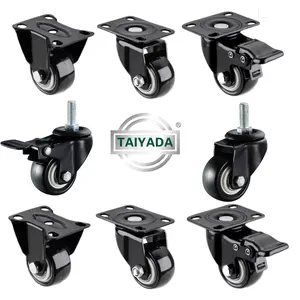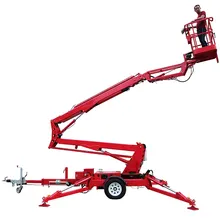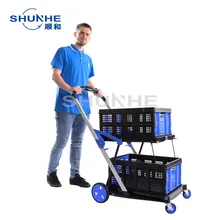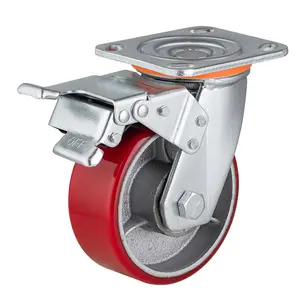What are Caster Wheels
Caster wheels are a specific type of wheel mounted to the bottom of a larger object to enable that object to be moved easily. They come in various sizes, materials, and designs, catering to different applications and load capacities. Caster wheels are commonly found on furniture, office chairs, shopping carts, hospital beds, and heavy equipment in industrial settings. These wheels are designed for smooth rolling and maneuverability, making the transportation of goods or equipment more efficient and less labor-intensive.
The fundamental principle behind caster wheels is simple: they reduce friction between the object they support and the surface over which it moves. Unlike static wheels, casters often feature a housing containing a bearing that allows the wheel to rotate 360 degrees. This rotation capability enables the attached object to be steered in any direction, making it easier to navigate around obstacles or through tight spaces.
Different caster wheel types serve specific purposes. For instance, some are designed for light-duty use on furniture or office equipment, while others are built to withstand the rigors of heavy industrial machinery. The choice of material for the wheel—such as rubber, nylon, or polyurethane—affects its durability, noise level during operation, and suitability for different floor types. In essence, caster wheels are indispensable components that enhance mobility and functionality across a multitude of environments.
Types of Caster Wheels
Caster wheels come in a variety of types to suit an array of applications across home, commercial, and industrial environments. Here's an overview:
Swivel Casters: These allow for 360-degree rotation, providing versatility and ease of steering. Swivel casters are commonly used on shopping carts and office chairs where multidirectional movement is required.
Rigid or Fixed Casters: Rigid casters do not pivot like swivel casters. They only roll back and forth in a straight line. They're typically used in combination with swivel casters to provide stability for large furniture or heavy machinery.
Braking Casters: Equipped with a braking mechanism, these casters can lock the wheel in place to prevent unwanted movement. They're essential in applications like hospital beds or food service carts where safety is a priority.
Industrial Casters: Designed for heavy-duty use, industrial casters can carry substantial loads and often feature robust materials like steel or iron. They're used on workbenches, machinery, and other heavy equipment.
Stem Casters: These casters have a stem that can be inserted into a socket or fitting on the underside of furniture or equipment. They're often seen on restaurant equipment and portable tables.
Plate Casters: Plate casters have a flat mounting plate that attaches to the bottom surface of an object. This design is suitable for heavier loads as it distributes weight more evenly.
Each type has its common use cases based on the unique needs of mobility within different settings—be it an office environment or an industrial workshop.
How to choose Caster Wheels
Selecting the right caster wheels requires careful consideration of their intended use and environment. Here are some factors businesses should consider:
Load Capacity: Evaluate the weight that the casters need to support. Ensuring that casters can handle the load without failure is crucial to maintain safety and extend the life of both the wheels and the equipment.
Floor Conditions: The floor type (e.g., hardwood, carpet, concrete) will influence your choice of wheel material. Some materials offer better floor protection while others are designed for durability under rough conditions.
Environment: Consider whether the casters will be exposed to elements such as water, chemicals, or extreme temperatures as this will determine the need for specialized materials like stainless steel or antimicrobial thermoplastic rubber.
Noise Levels: In environments like hospitals or offices where noise reduction is important, softer wheel materials such as rubber may be preferable.
Maneuverability: Swivel casters offer greater range of movement compared to fixed casters; however, a combination might be optimal depending on the required stability and steering capabilities.
Understanding these factors helps businesses make informed decisions when purchasing caster wheels to ensure their chosen products meet their operational needs effectively.
Best Caster Wheels on Alibaba.com
Alibaba.com stands as a global marketplace connecting businesses with a vast selection of caster wheels suitable for any application—from lightweight furniture to heavy industrial machinery. Alibaba.com has established itself as a trusted platform offering diverse sourcing options for businesses worldwide since its inception in 1999. With an expansive range of materials including polyurethane, nylon, steel—and features like swivel capability, brakes, and varying load capacities—businesses can find exactly what they need in one place.
The platform's user-friendly interface allows buyers to filter through options diligently while also providing access to customized solutions such as OEM support. This bespoke service ensures that unique requirements can be met with precision. Furthermore, Alibaba.com's Trade Assurance service maintains confidence in transactions by safeguarding payments until delivery completion—showcasing its commitment to customer satisfaction and secure trading experiences.
Choosing Alibaba.com for sourcing caster wheels means tapping into an extensive network of suppliers ready to fulfill both bulk orders and specialized demands with efficiency and reliability. Whether outfitting an office building or equipping an industrial plant with necessary apparatuses, Alibaba.com presents an optimal route for businesses seeking quality mobility solutions without compromise.
Common FAQs for Caster Wheels
What is the maximum load capacity of caster wheels?
The load capacity of caster wheels can vary significantly depending on their design and materials. It is essential to check the specifications provided by the manufacturer for the maximum load each wheel can support safely.
How do I determine the correct wheel material for my application?
Consider the flooring type where the caster wheels will be used and the environmental conditions such as exposure to chemicals or temperature extremes. Different materials offer varying levels of durability, noise reduction, and floor protection.
Can I mix different types of caster wheels on the same piece of equipment?
It is possible to mix swivel and rigid casters on a single piece of equipment to achieve a balance between maneuverability and stability. However, ensure that all casters are compatible in terms of load capacity and mounting type.
Are there caster wheels suitable for outdoor use?
Yes, there are caster wheels designed with materials that can withstand outdoor conditions. Look for wheels made from materials with high resistance to weathering, UV rays, and temperature fluctuations.
Do I need special caster wheels for use on carpeted floors?
Caster wheels with softer tread materials, such as rubber or polyurethane, tend to perform better on carpeted floors by reducing resistance and minimizing potential damage to the carpet.
How important is the bearing type in caster wheels?
The bearing type affects the ease of movement and load-bearing capacity. Ball bearings are ideal for applications requiring smooth motion and high load capacities, while plain bearings may be suitable for lighter loads and less frequent movement.
What are braking casters, and when should they be used?
Braking casters have a mechanism that allows the wheel to be locked in place, preventing rolling or swiveling. They're essential for applications requiring stability when stationary, such as in medical equipment or serving carts.
Are there caster wheels that reduce noise levels?
Caster wheels made from softer materials like thermoplastic rubber can help reduce noise levels during operation. These are particularly useful in environments like hospitals or libraries where quietness is valued.
What should I consider when choosing between stem and plate casters?
Stem casters are typically used when there is a need for a quick change or replacement, while plate casters offer more stability due to their larger mounting surface and are better suited for heavier loads.
Can caster wheels be customized to match specific design requirements?
Many suppliers offer customized support such as OEM, ODM, and OBM services that allow businesses to tailor caster wheels to specific design requirements including color, material, and functionality.




























 浙公网安备 33010002000092号
浙公网安备 33010002000092号 浙B2-20120091-4
浙B2-20120091-4